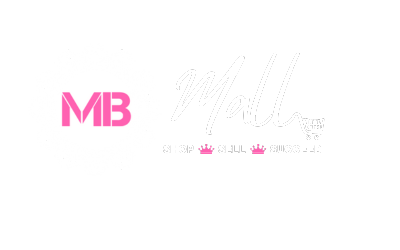
At the Seamless Africa event, I was reminded once again of the invisible currency that has carried MomBoss from an idea to a thriving community: trust. Standing on that stage, sharing my story with women who later told me how much it resonated, I realized that trust was not only my message—it was my method.
Trust has been the puzzle piece in scaling my business. Trust in my vision when resources were scarce. Trust from my community of women entrepreneurs who believed in the MomBoss platform enough to join, share, and grow together. And trust from partners and networks who saw my integrity before they saw my numbers.
Trust. It’s the silent force that anchors marriages, nurtures friendships, and transforms communities. In business, trust is equally foundational—a vital ingredient often overlooked in the rush for sales, innovation, or growth. For small business owners, and especially for women carving their place in the entrepreneurial landscape, trust is not just a “nice-to-have”—it is the pulse of a thriving enterprise.

What a privilege to be on stage with so many amazing industry leaders
Trust: The Currency of Every Relationship
Let us begin with a universal truth: every relationship, whether personal or professional, is built on trust. In marriages, trust allows couples to share their vulnerabilities, make joint decisions, and weather storms together. When trust falters, even the strongest bonds can unravel. The same holds for business—especially small businesses, where relationships are up close and personal.
For women entrepreneurs, trust goes deeper. It’s about believing in your own vision, trusting your instincts, and building connections in environments that may not always feel welcoming. Just as a marriage requires patience, honesty, and mutual respect, so too does your business journey.
Why Trust is Crucial in Small Businesses
Small businesses rely heavily on relationships—with clients, employees, suppliers, and the community. Unlike large corporations, where layers of bureaucracy and legal safeguards exist, small business owners depend on direct interactions. Trust becomes the glue that holds these connections together.
Customer Loyalty: When customers trust you, they keep coming back. They spread the word. A loyal customer base is built not just on product quality or pricing, but on your reputation for honesty and reliability.
Employee Engagement: A team that feels trusted is more engaged, creative, and willing to go the extra mile. For small businesses where every team member counts, a culture of trust can mean the difference between survival and success.
Partnerships and Networking: Trust opens doors to collaborations, partnerships, and growth opportunities. When others feel confident in your integrity, they are more willing to invest, refer, or join forces.
The Power of Trust for Women Entrepreneurs
Women-owned businesses face unique challenges—access to funding, gender bias, lack of mentorship, and sometimes, self-doubt. Here, trust becomes both shield and sword.
Breaking Stereotypes: Trust empowers women to challenge stereotypes and stand firm in their beliefs. When you are consistent, transparent, and fulfill your promises, you change minds—one interaction at a time.
Building Support Networks: Women entrepreneurs often rely on networks of peers, mentors, and community partners. These relationships flourish when trust is present, allowing for genuine support, knowledge sharing, and collaborative growth.
Self-Trust: Sometimes, the most critical form of trust is the trust you place in yourself. Believing in your skills, ideas, and resilience is essential for weathering setbacks and forging ahead.

MomBoss is all about collaboration NOT competition
Trust and the Parallels with Marriage
Consider the parallels: in a marriage, trust is built through shared experiences, honesty, communication, and a willingness to forgive mistakes. In business, these same pillars matter.
Communication: Open, honest communication with customers and employees builds trust and prevents misunderstandings.
Consistency: Just as in marriage, consistency in words and actions signals reliability.
Vulnerability: Admitting mistakes or seeking help does not weaken trust—it strengthens it, showing humility and authenticity.
Forgiveness and Learning: Learning from failures, forgiving yourself and others, and moving forward with wisdom deepens bonds and builds resilience.
Building Trust: Practical Steps for Small Women-Owned Businesses
So, how does one cultivate trust in day-to-day business? Here are practical strategies for women entrepreneurs:
1. Communicate Openly and Often
Transparency is key. Whether facing a challenge or celebrating a win, keep stakeholders informed. Update your team on changes, let customers know when products are delayed, and never shy away from difficult conversations.
2. Deliver on Promises
Every commitment, no matter how small, matters. If you promise a customer a follow-up call, make it. If you pledge to deliver a product by Friday, ensure it arrives. Over time, these actions build a reputation for reliability.
3. Embrace Vulnerability
Owning up to mistakes, admitting when you don’t have all the answers, and being open to feedback humanizes you—and human connection is the bedrock of trust.
4. Invest in Relationships
Take time to know your customers and employees personally. Celebrate milestones, ask about their families, and listen genuinely. Relationship-building is not a business expense; it’s an investment.
5. Model Integrity
Set the tone from the top. Demonstrate ethical behavior, fairness, and accountability. Your team and clients will follow your example.
6. Build a Supportive Community
Join women’s business networks, local chambers, or online communities. Support others, share your knowledge, and seek help when needed. Trust grows in circles of shared values and mutual respect.
7. Trust Yourself
Remind yourself: you are capable, resourceful, and worthy of success. Celebrate your achievements, learn from setbacks, and keep faith in your journey.

5 pillars for successful business owners
Challenges to Trust—and How to Overcome Them
No journey is without obstacles. Sometimes, clients may distrust your expertise, or competitors spread rumors. Perhaps internal conflict or self-doubt creeps in. When trust is shaken, take these steps:
Address Issues Head-On: Confront problems directly, clarify misunderstandings, and offer solutions.
Seek Feedback: Listen to concerns from employees, customers, and partners, and act on constructive criticism.
Stay Consistent: Keep showing up, keep delivering, and don’t let one setback define your story.
Trust as a Legacy
Trust is not built in a day, nor is it ever “finished.” It is a legacy, woven through daily interactions, shaped by every decision, and passed from one generation of business owners to the next. For women entrepreneurs, this legacy means more than profit—it means creating spaces where others feel valued, heard, and empowered.
Conclusion: Trust—The Heartbeat of Success
In business, as in marriage, trust is both fragile and powerful. It requires nurturing, patience, and unwavering commitment. For small women-owned businesses, the impact of trust extends beyond the balance sheet; it is the force that enables growth, inspires loyalty, and transforms challenges into opportunities.
Whether you are just starting out or steering a thriving enterprise, remember: trust does not just help you run a successful business—it helps you build something lasting, meaningful, and uniquely yours. So invest in trust, cherish it, and let it guide every step of your entrepreneurial journey.
Article by Lauren van Rooyen
CEO & Founder MomBoss Universe




